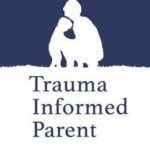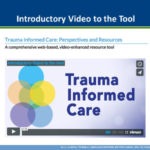Physical & Mental Health
- Depression/Suicide (35)
- Emotional Intelligence (13)
- Health Care Resources for Youth (35)
- Mental Health (81)
- Mindfulness (29)
- Nutrition (52)
- Obesity Prevention (35)
- Resiliency (14)
- Social-Emotional Learning (SEL) (76)
- Trauma-Informed Care (47)
This resource published by Resilient Educator provides trauma-informed teaching and self-care resources.
Trauma Informed Parent is an educational page offering information, resources, and perspective for parents and caregivers of children, teens, and young adults who have experienced trauma or adverse childhood experiences.
“Educator Resilience and Trauma-Informed Self-Care” includes a self-care self-assessment with key strategies for fostering resilience and a self-care planning tool to assist educators in identifying areas of strength and growth related to self-care and developing self-care plans.
The Treatment and Services Adaptation Center promotes trauma-informed school systems that provide prevention and early intervention strategies to create supportive and nurturing school environments.
“Trauma Informed Care: Perspectives and Resources” is a comprehensive web-based, video-enhanced resource tool.
This toolkit focuses on intervening early to promote positive mental health, prevent mental health challenges, and address mental health problems to achieve the best possible outcomes.
The third edition of the Child Welfare Trauma Training Toolkit (CWTTT) incorporates two foundational trainings, a specialized skills training for supervisors and caseworkers, and a supervisor consultation series to enhance transfer of learning into day-to-day practice.
The ChildTrauma Academy is a Community of Practice working to improve the lives of high-risk children through education, research, and the dissemination of innovation.
This article, published by ASCD’s Educational Leadership, gives the reader eight trauma-informed teaching strategies.
In this article published by Edutopia, using a trauma-informed approach, learn how to boost students’ sense of optimism.
The Trauma and Learning Policy Initiative’s (TLPI) mission is to ensure that children traumatized by exposure to family violence and other adverse childhood experiences succeed in school. To accomplish this mission, TLPI engages in a host of advocacy strategies including: providing support to schools to become trauma-sensitive environments; research and report writing; legislative and administrative advocacy for laws, regulations, and policies that support schools to develop trauma-sensitive environments; coalition building; outreach and education; and limited individual case representation in special education where a child’s traumatic experiences are interfacing with his or her disabilities.
Avoid the “summer slide” and keep the spirit of curiosity alive with these informal, anytime learning resources. This collection of videos and activities encourages students in grades PreK-12 to spend the summer asking questions, spinning stories, and exploring all the ways that learning can be fun.











